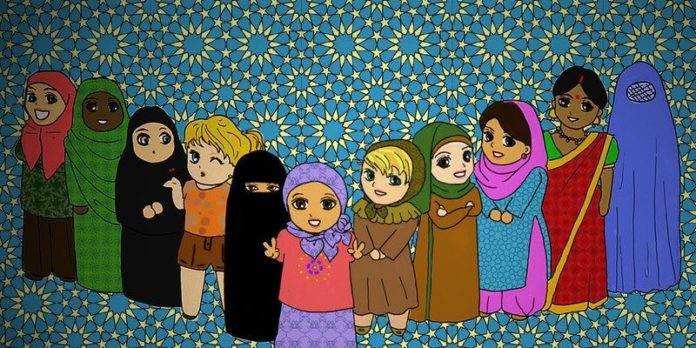7 Common Misconceptions about Muslim Woman
There has always been a debate on Muslim women as she has to face many threats by pre-Islamic practices. Islam has provided the rights to the woman to make their own decision about education, marriage, property and business, and so on.
But sill she has been suffering and fighting for her rights as the society has many misconceptions regarding women’s rights and people have forged the Islamic teachings according to their beliefs. There are some of the most common misconceptions about Muslim woman:
-
Muslim Woman is Oppressed:
This is the most common perception that women are oppressed in Islam. The status and role of other women and Muslim women are somehow the same as they have faced inequality at certain points. However, the Quran, as well as other religions, have always condemned the brutal attitude towards women. It is evidently mentioned in Quran that:
Every individual either man or woman both have equal rights and forbids the cruel attitude of burying the female child upon birth.
Islam has given the right to education, marriage as well as divorce in definite cases. But these rights are not interpreted as they are and women have to face forced marriages, restrictions and deprival of education, etc.
-
Muslim Women Must rely Financially on their Husbands
Usually, a man is the one who works and earns for the family. But, if Muslim women want to work, they have the right to do so. Muslim women have the right to pursue their goals. They can work independently and their husbands have no right to their earnings. And the husband has to provide his earnings for his wife and family irrespective of her earnings.
-
Muslim Women should wear Headscarf’s
It is also one of the misconceptions that have been experienced. Both men and women are directed to dress properly and decently by the Quran, but it is implemented differently. It is believed that Muslim women are forced to wear burqa or hijab, though it is real in some countries but not in all. Being Muslim, mostly women wear hijab on their own as a sense of pride.
-
Muslim Women can’t be Leaders/Scholars
The lack of female scholarships (in contrast with male scholarships) is a consequence of culture, male-controlled society, and financial elements – not Islam. Islamic history is full of women scholars, advocates, and translators. Aisha (RA), the spouse of the Prophet Mohammed (PBUH) was an early legal scholar and hadith transmitter. Another prior model is Aisha bint Muhammad from Syria who was a fourteenth-century hadith researcher.
-
Muslim Husbands can beat their Wives
Muslim men – despite what extremists say- men are not allowed to beat their wives. The Prophet Mohammed (PBUH) never his spouses and instructed men to regard, adore, and appreciate their wives.
-
Muslim Women Claim no Sexual Rights
In Islam, both men and women reserve a privilege of sexual fulfillment. Islamic lessons – particularly from the get-go – spoke transparently about such issues including the requirement for foreplay with your better half.
-
Muslim Women are not allowed in Mosque
This is just a societal issue. Muslim women are not required to go to the mosque-– in contrast to men – as they might be occupied with caring for their kids, taking care of the house, maybe not praying, and so forth. But they ought to never be halted from going to a mosque.

































